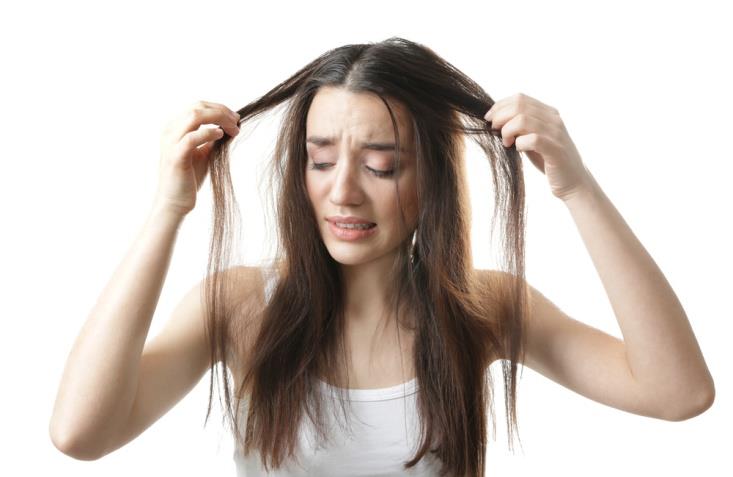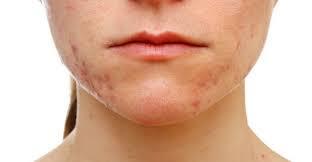There are so many ways in which stress affects your body, including hair, nails, and skin. Stress is the part of life, and what truly matters is how you cope with it.
So, it depends on what you really choose: a healthy mind and body over hair loss, fine lines or wrinkles, or the other way around. The same way to reduce stress is to consistently live with healthy practices, and some of them include: getting ample sleep, keeping the body hydrated, a disciplined work routine, etc.
In this way, for your own physical, mental and emotional well-being, it is critical to decrease the strain and empower healthy living.
The terrible ways in which stress affects your body are enlisted below.
Read also: 9 Useless Human Body Parts That Are No longer In Working State
1. Stress makes your hair fall out
It triggers alopecia areata, which structures patches of hair loss on the body, including the head or facial hair. Stress additionally triggers a habit you pull your hairs of head or beard simply out of bad habit.
The previously mentioned condition is named trichotillomania. Well, maybe you have noticed a person with a tough job, who has small patches in his beard. At that point, do not believe that it is hereditary, it is most likely the consequence of him pulling the hair out.

For this situation, his hair can develop back, yet the fact is that: it should not fall out in any case. You should give close consideration to your own constant responses to day by day stress as to keep away from the same thinness.
There is another condition that can be brought about by stress, named as telogen effluvium, which moves your hair follicles into the resting stage and subsequently makes the hair fall out in bunches. This is generally the aftereffect of something progressively horrible, rather than standard.
2. It makes your hair grey
Stress, affecting hair loss, is typically temporary and irregular. It is not likely that it hastens male pattern baldness permanently. But, on the contrary, it does permanently affect your hair color, by delaying or faltering melanocyte production in your hair follicle.
This focuses out that the hair is no longer delivering pigment, thus it winds up as grey or white, in case that all the color is lost.
If you have gone through something traumatic, you may undergo a spot of white hair. That is the result of the stress and a pigment loss. But regular, steady stress will increase the otherwise sturdy process of greying.
3. Stress gives you pimples
Stress changes your hormones. It expands the production of cortisol, which, accordingly, builds the oil production in your skin. The majority of this procedure prompts more noteworthy chances of obstructed pores. Stress likewise duplicates the number of bacteria that causes acne in the body, which requires a high-dosage antibiotic remedy from a dermatologist.

4. Stress dries the skin as well
All things considered, contingent on your body’s reaction to the significant levels of cortisol production, you may likewise catch up in extremely dry skin. Cortisol can delay the elasticity of skin and water retention, thus resulting in dermis dehydration. For this situation, set up a decent face oil to add moisture back to cells.
Read also: Best Body Toning Exercises In 2019 That You Can Do Without Gym
5. Stress ages you
Stress can exploit your sleep, burden your eyes, crease your brow, and so on. These referenced points are awful for the youthfulness. You will wind up quickening indications of aging that ought to have deferred another 10 to 20 years to show up.
So, you can expect fine lines on your forehead, crow’s feet at the corner of the eyes, splotchy skin, and dark circles. To limit this, get some more rest and afterward snatch a decent retinol medicine from your physician to control the harm.
6. Stress swells your eyes
The skin around the eyes is significantly more versatile than the remainder of your body and turns out to be steadily more slender as you age. That is the reason why you wear stress more obviously on your face.
A decline in rest expands the degrees of cortisol, which will help the tissues around the eyes hold moisture, and that is bad. So, applying eye cream or serum in the morning is your quick fix. But, do not give an absence of sleep to turn into your daily routine, or you will wind up observing progressively visible and less reversible impacts.
7. Makes skin problems worse
Stress can worsen psoriasis, rosacea, and eczema. It can further cause hives and some other types of skin rashes and accelerate a flare-up of fever blisters.
8. Stress causes nail shredding and ridging
Cortisol appears to cause a loss of biotin in the body. Nails require vitamins and minerals to remain healthy, but stress makes it harder for the body to absorb the needed nutrients, so as a side effect, nail shredding and pitting occur.
9. Stress results in TMD
Stress causes us to tighten or grind the teeth, which results in joint or muscle pain called temporomandibular disorders, or TMD. It ends up in headaches, neck and back pain and worn down teeth that look unappealing.









I totally agree that depression can cause hair loss and ultimately totally bald.
But thankfully, technologies are much advanced that baldness can be reversed with a hair transplant.
OH, even now you really need to get out of depression.